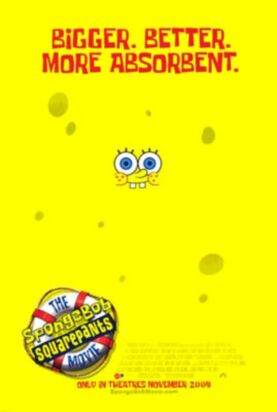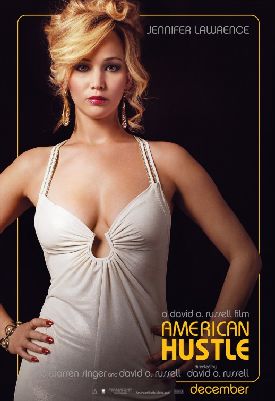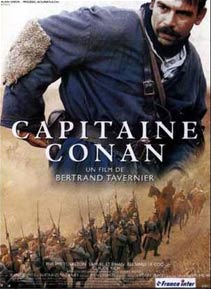SpongeBob SquarePants Movie, The
The post-modern feature length cartoon can go in one of two directions. It can, like The Incredibles, allow itself to be seduced by the ethos of what it is parodying, namely the comic-book heroism that is itself a parody of earlier forms of literary heroism. Or it can take a hard line and insist that the parody remain a parody, the heroes only laughably and not in any sense “really” heroic. The SpongeBob SquarePants Movie, directed by Sherm Cohen and Stephen Hillenburg, takes the latter course. Every conceivable temptation to real heroism is not only resisted but scorned and ridiculed and the heroic narrative itself, in the form of a quest by SpongeBob (voice of Tom Kenny) and his pal Patrick (Bill Fagerbakke) to find and return the crown of King Neptune (Jeffrey Tambor), is left in what can only be called a pile of smouldering ruins.
Of course, you might almost have expected this from a heroic narrative whose heroes are a sponge and a starfish, but it just goes to show you how accustomed we have grown to the weird, po-mo film language of our times that it comes as a bit of a surprise. Parents, lulled by The Incredibles into supposing that for all the dangerously delightful comedy at the expense of heroism the kids are still getting a somewhat wholesome message, might want to take note. For here any vestige of heroism has to endure a more-or-less specifically feminist debunking. The film’s real hero is not SpongeBob but Mindy, voiced by Scarlett Johansson, a bespectacled mermaid supposed to be King Neptune’s daughter. The only female creature in the sea, apparently, and an obvious blue-stocking — or blue-flipper — Mindy is briskly dismissive of all the childish males with whom she is surrounded, from her father all the way down to SpongeBob.
She is the designated successor of King Neptune as ruler of the sea and is already assuming the right to command, scolding her father for his exercise of masculine authority by saying: “Can’t you get through one day without executing somebody?” She recommends him to “try a little love and compassion instead of these harsh punishments.” When Neptune’s crown is stolen it is only a crisis because he needs it to cover up his bald spot — yet more male vanity coming in for a spot of ridicule — but Mindy encourages SpongeBob and Patrick to go on the quest in order to save their friend Mr Krabs, the owner of the Krabby Patty restaurant where SpongeBob works, from execution for stealing the crown. Krabs, as we know, has been framed by the evil Plankton (Doug Lawrence), who wants the other’s secret recipe for Krabby Patties in order to make a success of his own, rival fast-food restaurant, the Chum Bucket.
Even the forces of wickedness here are made ridiculous by being reduced to microscopic size and set in the context of a rivalry between fast-food chains. But fast-food is a serious business for kids, and SpongeBob’s television show seems to have become so popular with children at least partly because it understands the romance of burgers and shakes for them. The movie briefly compares it to the romance of alcohol for adults, but it never allows its focus to shift from the kid’s-eye-view and undercuts any other, more adult sort of romance that threatens to develop out of it. That’s why Mindy is particularly insistent that SpongeBob and Patrick undertake their quest as children, though they themselves have been persuaded that they need to be men.
SpongeBob’s hoped for managership of one of Mr Krabs’s restaurants has been given instead to Squidward (Rodger Bumpass) because SpongeBob is “just a kid” and, as Mr Krabs points out, “To be a manager you have to be a man. Otherwise they would call it a ‘kidiger’.” So SpongeBob and Patrick set out on their quest, as many a hero before them has done, to prove their manhood. But Mindy has no time for such foolishness. “What’s wrong with being kids?” she asks them. “Kids rule anyway. You don’t have to be a man.” When at first they insist, she gives them some fake mustaches made out of seaweed which for a moment make them think they have become like men in being fearless. And if fearless, then invincible.
“I never said that,” says Mindy.
Throughout the film all the other authority figures are absurd and silly, but not Mindy. Back at Bikini Bottom, Plankton is using the new success of the Chum Bucket as the springboard to a fascist dictatorship called Planktopolis. But his radio-controlled minions are no match for Bossy Miss Mindy’s determination to keep everything childish and unthreatening. Thus the alleged “monsters” — really only cartoon grotesques — that SpongeBob and Patrick are forced to confront prove to be easily entertained and become their friends, and they find and return the crown with the help of a (more-or-less) live-action David Hasselhof, in himself a natural parody of the old masculine ideal. The explicitly drawn moral of the story is that SpongeBob doesn’t have to be a man after all. “Nothing can make me other than what I am, he says. “A kid. But that’s OK. I did what they said a kid couldn’t do.”
In true post-modern style, it is not enough merely to dismiss the idea of heroism. The authors must also ridicule the sort of movie, presumably already familiar to its audience, in which heroism is allowed to appear. So when Squidward suggests to SpongeBob the more conventional heroic ending, namely that he might no longer want to be Mr Krabs’s manager because he has been changed by his quest, learning that “what you were looking for was really inside you,” the latter replies: “Are you insane?” and takes from him the coveted manager’s pin. The SpongeBob SquarePants Movie thus just makes explicit and unashamed the subliminal message of a great many cartoons, which is that it’s OK not to grow up, to stay a kid while doing all kinds of things that grown-ups have said kids couldn’t or shouldn’t do.
Parents be afraid. Be very afraid.
Discover more from James Bowman
Subscribe to get the latest posts to your email.







